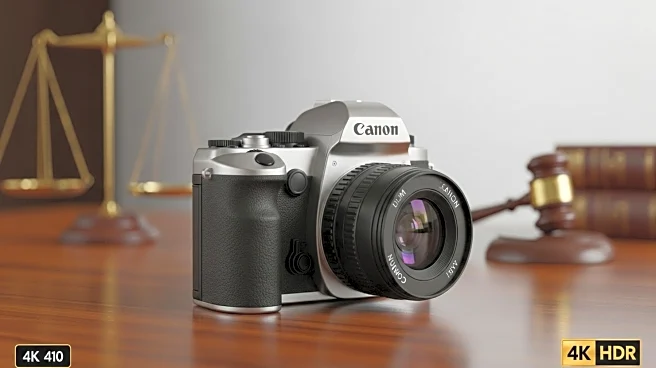What is the story about?
What's Happening?
Thabo Bester, a notorious South African criminal known as the 'Facebook rapist', has initiated legal proceedings to prevent Netflix from releasing a documentary about his life. The documentary, titled 'Beauty and the Bester', is a three-part series that explores Bester's criminal activities, including his alleged escape from prison. Bester's legal team argues that the documentary is defamatory and infringes on his right to a fair trial, as he has not been convicted of escaping prison. The documentary also features Bester's partner, Nandipha Magudumana, who allegedly assisted in his escape. Netflix's legal representative contends that the series provides a platform for Bester's victims to be heard. The High Court is expected to rule on the matter shortly before the documentary's scheduled release.
Why It's Important?
The legal battle over the documentary highlights the tension between media freedom and the rights of individuals involved in ongoing legal proceedings. The case underscores the challenges faced by media companies in balancing storytelling with legal and ethical considerations. For Netflix, the outcome could set a precedent for how similar cases are handled in the future, potentially affecting its content strategy and legal obligations. The documentary's release could also impact public perception of the justice system in South Africa, a country grappling with high rates of sexual violence. Victims' rights advocates argue that the documentary provides a necessary platform for voices that have been historically marginalized.
What's Next?
The High Court's decision will determine whether Netflix can proceed with the documentary's release. If the court rules in favor of Bester, it could delay or alter the documentary's content. Conversely, a ruling in favor of Netflix may embolden other media outlets to pursue similar projects. The decision could also influence public discourse on the balance between media freedom and individual rights, particularly in cases involving high-profile criminal figures. Stakeholders, including legal experts and human rights organizations, are likely to weigh in on the implications of the court's ruling.
Beyond the Headlines
The case raises broader questions about the role of media in shaping narratives around crime and justice. It also highlights the potential for documentaries to serve as platforms for social change by amplifying the voices of victims. However, it also poses ethical dilemmas about the portrayal of individuals who have not been convicted of certain crimes. The outcome of this case could influence how future documentaries are produced and the legal frameworks governing them.
















